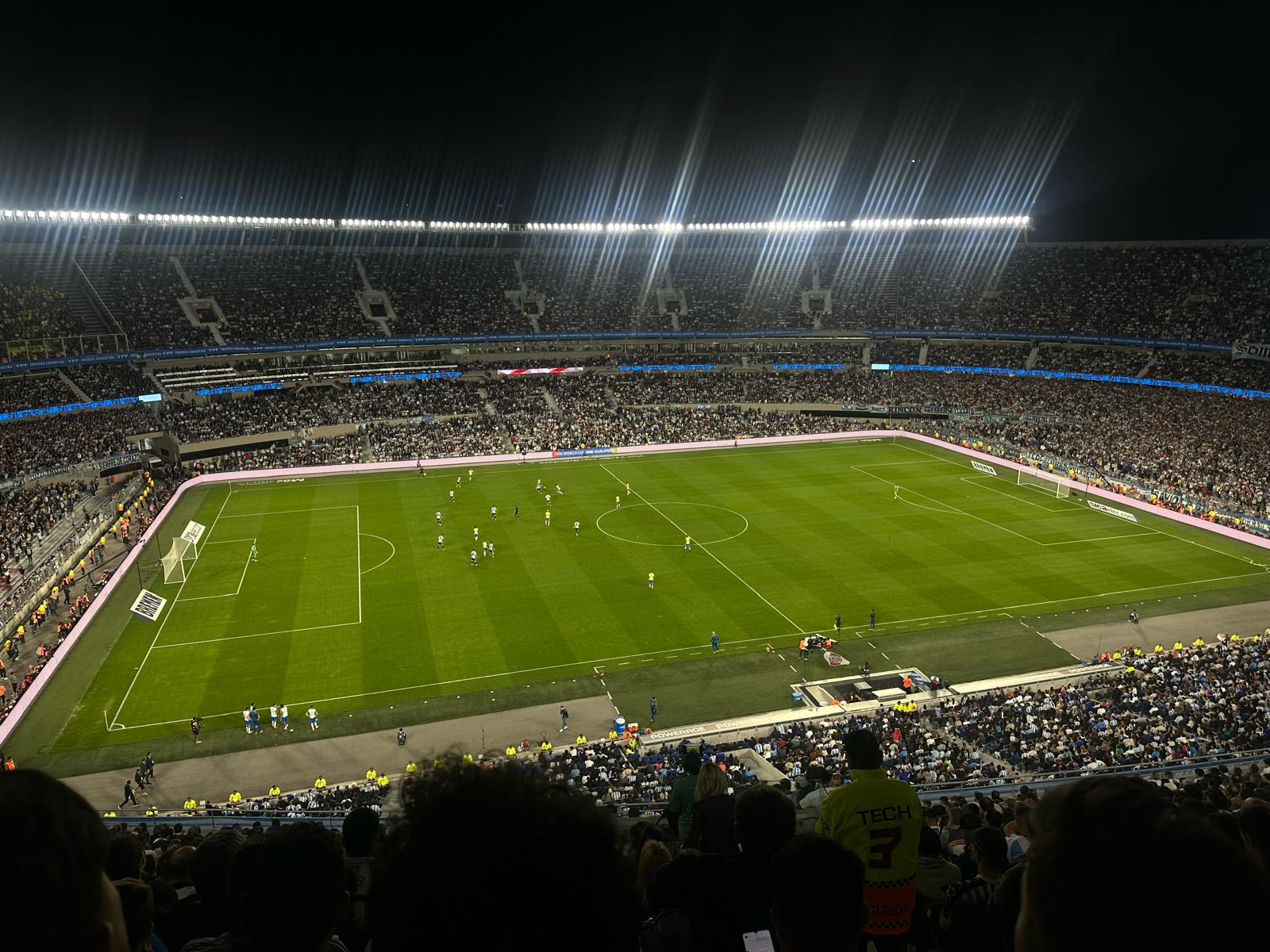The Argentinian soccer club Estudiantes de La Plata sits in first place in the Liga Profesional de Fútbol’s Group A, tied with two other teams. The players are affectionately known as La Pincha. At games, fans chant an anthem putting down other teams: “I’m not a Boca fan because I was born in Argentina, I’m not a River fan because I was never a chicken.”
La Pincha holds the distinction as the first soccer club in Argentina to welcome foreign investment.
Foster Gillett, the son of George Gillett — former shareholder and part-owner of Liverpool Football Club in England — became a controversial investor in Estudiantes in October 2024. The sale was the first step in Argentine president Javier Milei’s plan to turn his country’s football clubs into private corporations. His plans have been nicknamed the Sociedad Anonma Deportivo movement, or SAD movement.
In 2023, Milei decreed that the Argentine Football Association must amend its bylaws and allow private corporations to invest in clubs. Argentine football clubs are deemed “non-profit civil associations” where fans pay a membership fee to attend matches and participate in club decisions on and off the pitch. Fans and clubs alike have had staunch support for the status quo.
“The reaction to Gillett’s arrival in Argentine football has been largely negative,” said Daniel Edwards, an expat football journalist covering South American football. “Estudiantes are attempting to usher in private ownership through the back door with his involvement and bankrolling.”
When the partnership was announced, the club’s current president and former player Juan Sebastian Veron dubbed it a “revolution.”
The January transfer window — one of two periods in a calendar year when teams are allowed to buy and sell players to bolster their squads — started well. Gillett and Estudiantes paid an immediate $15 million release clause fee to local rival club Boca Juniors for midfielder Cristian Medina.
However, towards the end of the window, Estudiantes attempted to sign defender Valentín Gomez from fellow Buenos Aires club Velez Sarsfield and Rodrigo Villagra from River Plate. Neither transfer went through, and both players remain playing for their respective clubs.
Gillett did not pay the $8.5 million for Gomez in time before the window closed, according to reports from the local La Plata news outlet, 0221.com.
“A lot of fans got very angry quickly,” said Gonzalo Solari, an Estudiantes fan. “Valentin Gomez especially got us excited because he had just won the league (with Velez) and is a defender with really high potential. I think he would have played well with us.”
Due to its lack of financial security, Argentinian football has never reached the heights of its European counterparts. A combination of Argentina’s unstable economy, coupled with European football’s financial might, has enticed many young Argentine players to move across the ocean. Lionel Messi, Rodrigo De Paul, Alexis MacAllister and Angel Di Maria — members of the 2022 Qatar World Cup winning team — all played in the Argentinian league but were poached by European clubs and turned into international superstars.
Gillett’s investment in Estudiantes was meant to open the door to more foreign investors in Argentine football, increasing teams’ ability to compete with the rest of the football world and help strengthen the economy with more investment.
“European football is where most players here aspire to be,” said Solari. “It’s what we watch every week on TV, the Barcelonas, the Real Madrids, the Manchester Uniteds. Football is big here, but Europe is where the best players are and the money.”
